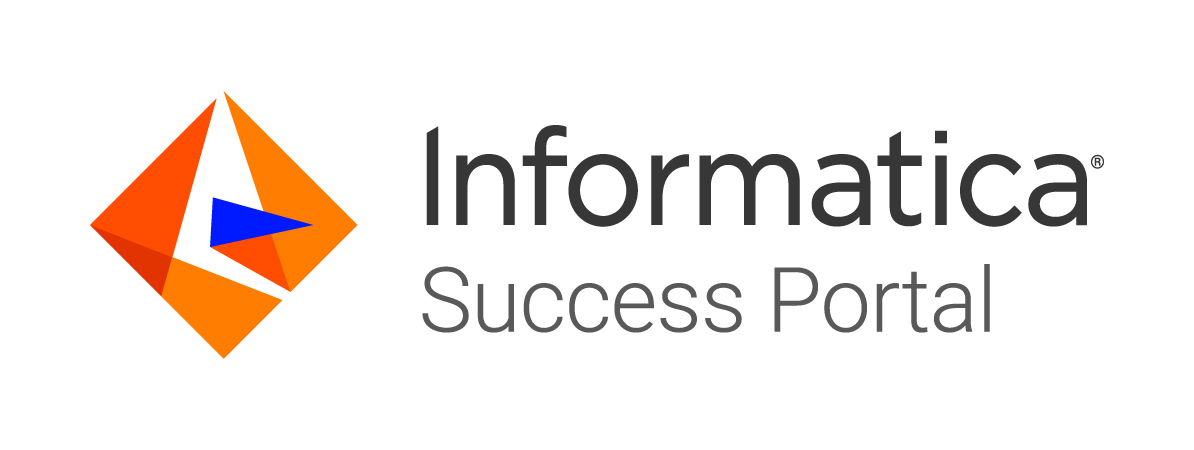-
Manage your Success Plans and Engagements, gain key insights into your implementation journey, and collaborate with your CSMsSuccessAccelerate your Purchase to Value by engaging with Informatica for Customer SuccessAll your Engagements at one place
-
A collaborative platform to connect and grow with like-minded Informaticans across the globeCommunitiesConnect and collaborate with Informatica experts and championsHave a question? Start a Discussion and get immediate answers you are looking forCustomer-organized groups that meet online and in-person. Join today to network, share ideas, and get tips on how to get the most out of Informatica
-
Troubleshooting documents, product guides, how to videos, best practices, and moreKnowledge CenterOne-stop self-service portal for solutions, FAQs, Whitepapers, How Tos, Videos, and moreVideo channel for step-by-step instructions to use our products, best practices, troubleshooting tips, and much moreInformation library of the latest product documentsBest practices and use cases from the Implementation team
-
Rich resources to help you leverage full capabilities of our productsLearnRole-based training programs for the best ROIGet certified on Informatica products. Free, Foundation, or ProfessionalFree and unlimited modules based on your expertise level and journeySelf-guided, intuitive experience platform for outcome-focused product capabilities and use cases
-
Library of content to help you leverage the best of Informatica productsResourcesMost popular webinars on product architecture, best practices, and moreProduct Availability Matrix statements of Informatica productsMonthly support newsletterInformatica Support Guide and Statements, Quick Start Guides, and Cloud Product Description ScheduleEnd of Life statements of Informatica productsMonitor the status of your Informatica services across regions
ODATA Capabilities in Cloud Application Integration
Share On:
Description
OData (Open Data Protocol) is a standardized protocol developed by Microsoft for creating and consuming RESTful APIs. By enabling OData through cloud application integration, it facilitates CRUD (Create, Read, Update, Delete) operations on data through a standardized and RESTful API interface, making it easy to interact with data resources over the web.
Customer Pre-Requisites
- Knowledge on ODATA.
- Knowledge on How to create App connection in Cloud Application Integration through JDBC.
- Knowledge on Database queries on which the ODATA URL is being created.
Self-Service Resources
Goals
- Establish OData endpoints on Databases from cloud application integration to enable seamless data exchange between disparate cloud applications, ensuring standardized communication and data consistency.
- Utilize OData’s rich querying features to allow complex data queries, filtering, sorting and pagination directly via API calls to Cloud Application Integration Connection.
Business/Technical Outcomes
- Exposing the database as API URL which can be directly used in Third party applications (Ex: salesforce)
- Achieve seamless integration and data flow across different cloud services, reducing data silos and improving accessibility.
- Provide users to access and manipulate the data in the database through the API calls to Cloud Application Integration connection.
- Architects
- Administrators
- Developers
Actions
Add to Favorites
Remove from Favorites
Engagement Details
Catalog Type
Ask An Expert
Engagement Category
Feature Clarity
Products
Cloud Application Integration
Engagement Type
Ask An Expert
Adoption Stage
Implement
Focus Area
Adoption - Technical
Functional
Engagement ID
AAE-CAI-002
Disclaimer
- All the topics covered in the Success Accelerators/Ask An Expert sessions are intended for guidance and advisory only. This is implicit and it will not be called out under the scope of each engagement.
- Customers need to include their relevant technical/business team members highlighted in each engagement topic to derive the best out of each engagement.
- Customers need to perform any hands-on work by themselves leveraging the guidance from these engagements.
- Customers need to work with Informatica Global Customer Support for any product bugs/issues and troubleshooting.
